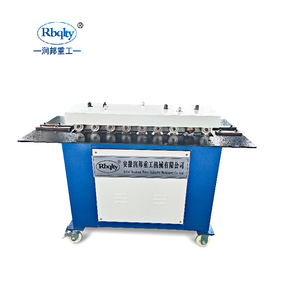
All categories
Featured selections
Trade Assurance
Buyer Central
Help Center
Get the app
Become a supplier














Khám phá bộ sưu tập trên Alibaba.com và thêm một hoặc hai nhân vật vào họ cơ khí khóa hình thành máy móc hiện có. Nền tảng công nhận tầm quan trọng của chúng không chỉ đối với trẻ em mà còn đối với người lớn. Thay thế một nhân vật đã mất bằng một nhân vật mới tương tự, hoặc ra ngoài và xây dựng một thứ hoàn toàn mới. cơ khí khóa hình thành máy móc tạo thêm những món quà sinh nhật đặc biệt cho những người thân yêu và cũng là những món quà lưu niệm tuyệt vời. Nhìn chúng một cái là cảm giác nhớ nhung và ký ức ùa về! Chúng cũng có thể chỉ đơn giản là thú vị khi nhìn và là một nguồn hạnh phúc quan trọng.
Alibaba.com có một bộ sưu tập khổng lồ gồm cơ khí khóa hình thành máy móc để khám phá. Nó có một loạt các nhân vật tuyệt đẹp từ TV, phim và trò chơi. Mỗi bộ sưu tập có các tính năng độc đáo và mỗi bộ sưu tập là một loại thú vị khác nhau. Những người đam mê sẽ rất ngạc nhiên khi phát hiện ra những nhân vật hiếm nhất, nếu không được cho là đã tuyệt chủng, tại đây. Ngoài các ký tự đơn làm sẵn, còn có các khối hình và các mảnh ký tự có sẵn. Những điều này thách thức khả năng sáng tạo bên trong khi kết hợp chúng lại với nhau để tạo ra bạn bè, gia đình hoặc những người nổi tiếng.
cơ khí khóa hình thành máy móc không chỉ tạo ra những món quà dễ thương mà chúng còn là công cụ thiết kế nội thất của các khoảng trắng. Chúng tạo ra những màn hình độc đáo khi được kết hợp vào không gian. Chúng đại diện cho cá tính của một cá nhân và cũng là những phần thiết yếu trong đức tin tôn giáo của các cá nhân. Một người có thể biết chủ sở hữu có thích phim, siêu anh hùng, địa điểm yêu thích hay không, v.v. chỉ bằng cách phát hiện những trung tâm nhỏ dễ thương này. Có thể thiết kế các ký tự đặc biệt theo yêu cầu.
Hãy thư giãn ngay bây giờ, việc tìm kiếm kết thúc tại đây. Tận hưởng trải nghiệm mua sắm không giống ai với Alibaba.com để có các giao dịch bán buôn và bán lẻ cơ khí khóa hình thành máy móc cạnh tranh với giá cả cạnh tranh. Chọn một yêu thích và đặt hàng ngay bây giờ.